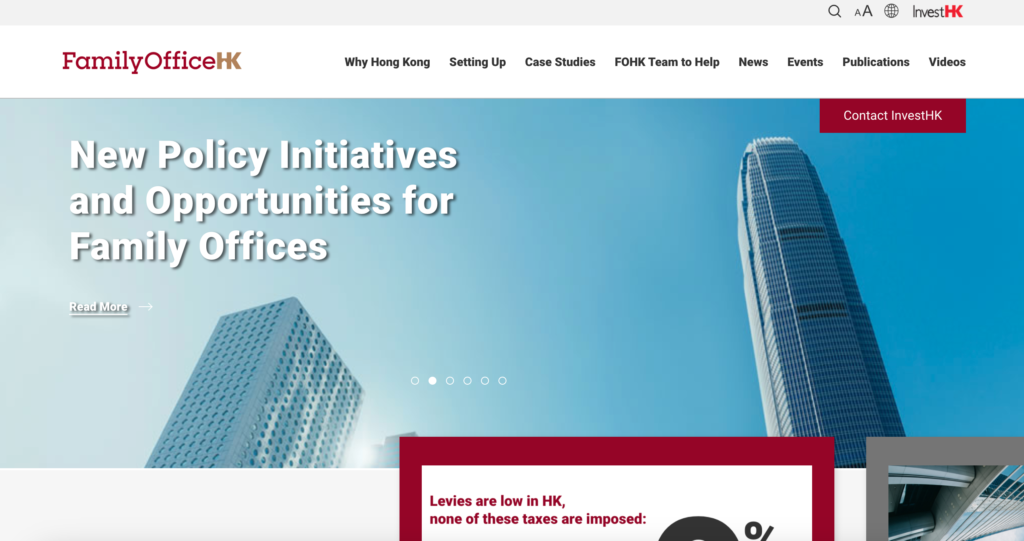In the high-stakes world of family office management, a potent contest is brewing. Two of Asia’s financial hubs, Hong Kong and Singapore, are vying to become the go-to destination for the world’s Ultra-High-Net-Worth-Individuals (UHNWIs) to park their wealth.
Family offices, private wealth management advisory firms catering to billionaires and their families, provide a comprehensive suite of services — from financial planning, investment management, tax accounting, and legal consultation to even managing family travels and wine tastings.
Li Ka-shing, one of Hong Kong and Asia’s wealthiest tycoons, made headlines with the opening of a family office in Singapore. Such news raises a fundamental question: is the Lion City outpacing Hong Kong as the darling destination for the global elite’s family offices in Asia?
Hong Kong’s government isn’t taking this lying down. In a bid to remain a premier hub for family offices, it aims to help establish at least 200 such firms by 2025. By the end of 2020, Hong Kong managed wealth worth USD $1 trillion, more than Singapore’s USD $790 billion. What’s the secret sauce each city-state offers in this battle?
The Singapore Advantage
Singapore’s status as a tech hub and its legal, investment, and livability factors are all critical considerations. A safe jurisdiction boasting a robust legal system and the rule of law, Singapore provides easy access to global and regional markets. It took a leaf from the Swiss banking playbook, striving to create a healthy financial environment with rigorous client confidentiality.
In recent years, Singapore has positioned itself as an offshore asset management center, offering the benefits of a segregated model for hedge funds, freedom of capital movement, and tax benefits to offshore companies, alongside a low corporate tax rate for maximizing enterprise profits.
This approach has attracted tech-savvy younger UHNWIs keen on investing in familiar tech sectors. They’re more aggressive and daring and prefer higher stakes in stocks and hedge funds.
Qualified family offices can enjoy tax breaks on a series of investments in Singapore. This policy led to a boom in family offices — from 400 at the end of 2020 to 1,100 by 2022. The Monetary Authority of Singapore recently announced plans to adjust this tax benefit, aiming to encourage more philanthropic activities and local investments.
Hong Kong’s Counterplay
Hong Kong is not resting on its laurels. At a recent luncheon at the Bank of Singapore, Secretary for Financial Services and the Treasury, Christopher Hui addressed over 200 UHNWIs, outlining Hong Kong’s family office development policies.
The government has rolled out a series of incentives, including tax exemptions for qualifying family offices managing family assets in Hong Kong. With an asset threshold of HK$240 million, the tax break is enticing. Before the end of the year, an institution that aims to train wealth inheritors and industry practitioners will also be established.
Earlier this year, the Hong Kong government formally launched a network for family office service providers. The government indicated it would continue collaborating with teams from various professional service sectors, including the banking industry. The goal is jointly promoting Hong Kong’s diverse opportunities to global family offices.

The Growing Family Office Sector in Asia
Some industry insiders argue that there is room for both Hong Kong and Singapore in this arena. Family offices can invest in both regions, choosing Hong Kong for Greater China and Singapore for Southeast Asia.
According to research conducted by Mordor Intelligence, the number of family offices worldwide increased by 38% annually and reached 7,300 in the second quarter of 2019. North America had the highest number of family offices, with 3,100, accounting for 42%. Europe came next with 2,300.
Particularly notable is the rapid growth in the Asia-Pacific region, which saw an impressive 44% increase, resulting in 1,300 family offices. This surge underscores Asia’s emerging influence in global wealth management.
As we watch this exciting clash of titans unfold, one thing is clear: Asia, particularly Hong Kong and Singapore, is fast becoming a hotspot for family office establishments. Whether tech tycoons or old-money dynasties, these titans of wealth are now playing in Asia’s growing markets. With strategic initiatives, innovative incentives, and regional strengths, both city-states set the stage for an enticing showdown in attracting the world’s wealthiest families.




